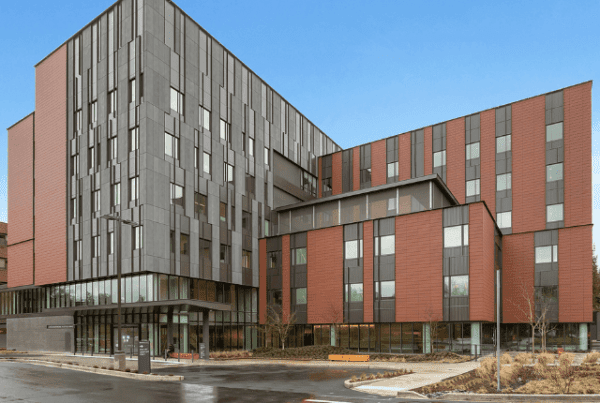Our partnership with the Veterans Administration began in 1946 with two seminal events. The UW School of Medicine welcomed its first class of students, and the VA adopted a new policy of forming affiliations with academic medical centers to provide veterans with the highest quality of medical care.
Some 70 years later, this partnership continues to be strong and mutually beneficial. It has improved care for veterans by having UW Medicine faculty practice at VA hospitals. At the same time, it provides UW Medicine with critical resources and funding for our teaching, research and education programs. As one example, about 20 to 25 percent of our trainees in the Departments of Medicine and Surgery are at VA Puget Sound. In addition, the Boise VA Medical Center is an important clinical site for our regional education program (WWAMI) and helps us address the need for more doctors in Idaho and other rural areas.
This week, as part of our observance of Veterans Day, I’d like to highlight how these vibrant partnerships are advancing UW Medicine’s mission to improve the health of the public while also achieving the VA’s goal of “honoring America’s veterans by providing exceptional healthcare that improves their health and well-being.”
The VA Puget Sound Health System provides care for about 105,000 veterans each year and is home to clinical rotations for about 1,000 UW Medicine trainees.
Dr. Catherine Kaminetzky, Chief of Staff and UW Associate Professor of Medicine, describes our partnership with VA Puget Sound as a wonderful opportunity to share in the mission of improving health through patient care, teaching and research.
Patients have access to nationally-recognized Centers of Excellence in Multiple Sclerosis, Substance Abuse Treatment and Education, Epilepsy, Primary Care Education, and Amyotrophic Lateral Sclerosis Care. They also benefit from nationally recognized programs including Regional Amputation Center, Regional Spinal Cord Injury Hub, Polytrauma Network Site, eight CARF Accredited Programs, and nationally recognized programs in bone marrow and lung transplantation, comprehensive cancer care, hepatitis C education and research, and mental illness education and research.
Our trainees gain valuable experience working with patients who have a high level of comorbidities, including post-traumatic stress disorder, traumatic brain injury, limb loss and rehabilitation, substance abuse, and cardiac and pulmonary illnesses. The VA has been ahead of the curve in promoting interprofessional teams, panel management and the use of electronic medical records. Locally, VA Puget Sound has focused extensively on patient safety and has funded positions for Chief Residents in Quality and Safety for advanced training in this vital field.
VA Puget Sound ranks in the top 10 nationally of VA research programs. An annual budget of $33 million supports more than 500 research projects in such areas as Alzheimer’s disease and memory improvement, post-traumatic stress disorder, Parkinson’s disease, traumatic brain injury, diabetes and cancer treatments, and smoking cessation.
The Boise VA Medical Center provides primary, secondary and specialty care to about 28,000 veterans each year. As part of the Idaho WWAMI program, medical students have rotations in internal medicine, psychiatry, general surgery and other services. In addition, two residency programs are based here.
When the Boise Internal Medicine Residency began in 1977, residents trained in both Seattle and Boise. It became a freestanding program in 2011 and now has 33 residents each year in Boise. In addition, the Department of Psychiatry offers a two-year advanced clinical track for four residents each year in Boise. This program prepares residents to work as general psychiatrists in underserved areas and to collaborate effectively with primary care providers in these communities.
Dr. Melissa (Moe) Hagman, program director of the internal medicine residency, is a Boise native and graduate of the program. She believes that Boise VA gives trainees an opportunity to develop their skills in an ideal environment because patients have coverage from the VA for evidence-based care. She also notes that the medical center benefits from a “can do” spirit, and it is among the top 10 Veterans hospitals in the nation for patient and employee satisfaction.
I am confident that these partnerships will thrive in the years ahead. I also want to note that when the UW School of Medicine opened in 1946, about half of the students in our first five classes were veterans. Today, we continue to benefit from having many veterans among us – as students, trainees, faculty and staff.
Thank you for your service to our country and the UW Medicine community.
Sincerely,
Paul G. Ramsey, M.D.
CEO, UW Medicine
Executive Vice President for Medical Affairs and
Dean of the School of Medicine,
University of Washington


